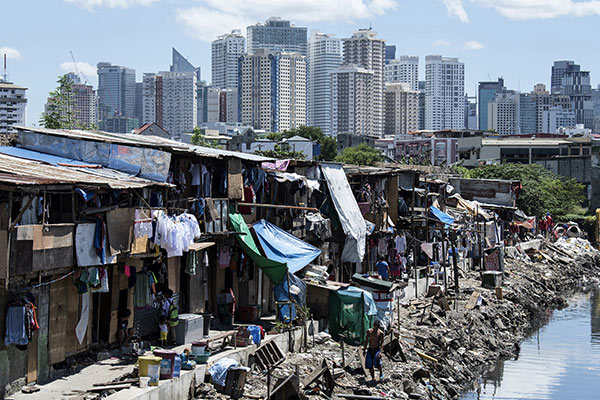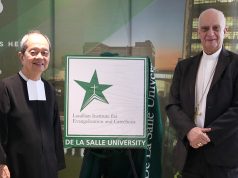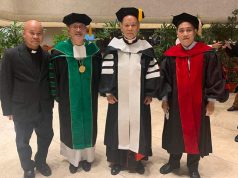
A Facebook post of a graduate from De La Salle University-Manila went viral for sharing the experience of being “wealth shamed” by some people in the workforce—a phenomenon that points to the current wealth gap in the Philippines.
Facebook page “DLSU-Manila Secret Files” shared a story that was submitted by a graduate of the university’s business program.
According to the post, the graduate and some of his/her co-trainees who are from the same socioeconomic background were allegedly being “bullied” by their fellow trainees in the office since they have more means that the rest of them.
DLSU, after all, is considered one of the most expensive universities in the country. Latest reports indicate that its average tuition fee per year ranges from P196,000 to P230,000. Ateneo de Manila University has an average tuition of P180,000.
The University of the Philippines, meanwhile, has an average tuition fee of P50,000—a subsidized rate depending on the finances of the student’s family.
Most comments thread accused the graduate of “humble bragging” and being privileged or extremely entitled.
The post was eventually shared on Reddit, where other users symphatized with the graduate.
Another user said, “This wealth-shaming, similar to smart-shaming, is probably a contributing factor to why our country isn’t progressing as much as we can.”
“We shame those who are, by all accounts ‘better’ than us in an effort to make ourselves feel good about ourselves. But this also hinders others, bystanders and participants alike, from pursuing wealth and knowledge, because they’ll be ‘shamed’ for it.”
Last year, it was reported that there was a slight decline in the Filipinos’ wealth which resulted in the increase of income inequality among workers.
How rich are the Filipinos?
In Credit Suisse’s “Global Wealth Report,” over 60 million Filipinos have an average wealth of $9,773 (or P513,736.32 in today’s exchange rate) in 2017.
In 2016, the figure was around $9,878 (or P519,265.44 in today’s exchange rate), showing a decline.
They also reviewed the average net worths of people in Singapore, Brunei, Malaysia, Indonesia, Thailand, Laos, Vietnam, Cambodia and Myanmar.
Based on the data, 86.6 percent of Filipinos have a net worth that’s below $10,000 (P525,727.58 in today’s exchange rate). Only 0.1 percent of them have a net worth above $1 million.
To be considered rich, iMoney noted that Filipino households have to earn at least P50,000 every month and P594,317 or more every year.
A middle-class household is considered such if they earn around P11,915 to P49,526 every month and P42,975 to P594,317 every year.
A low-income household, meanwhile, earns around zero to P11,914 every month and P142,974 every year.
According to Pinoy Money Talk, a household is considered rich if its head is a corporate executive, a manager, a managing proprietor, a supervisor, government official or a special interest organization official.
They must also own at least three airconditioning units and at least three vehicles in their family garage.
In latest reports, Social Weather Survey noted that 31 percent of Filipino families have claimed to have risen out of their low-income status.
Meanwhile, 12 percent have claimed they became poor. 6.4 percent of them stated that they used to be considered “non-poor” years ago.









